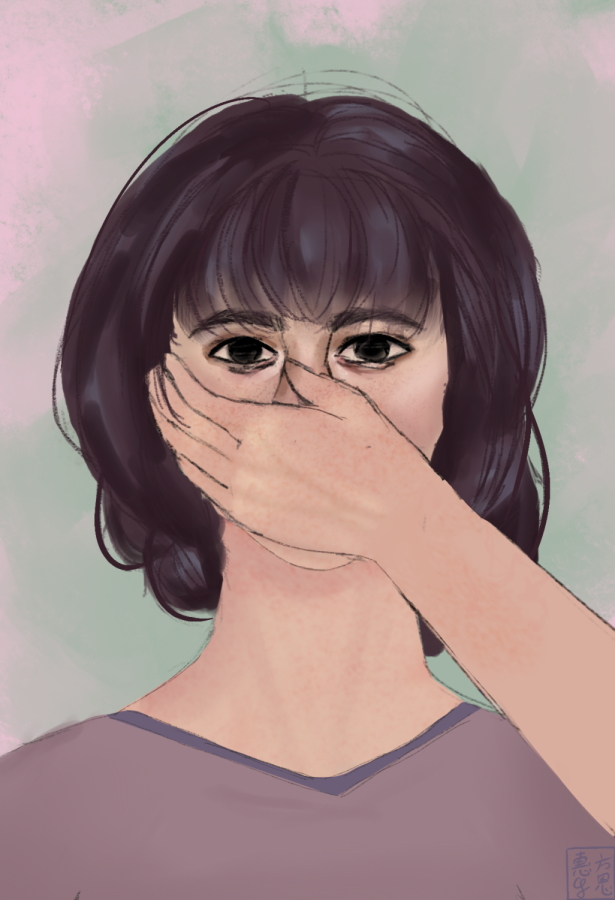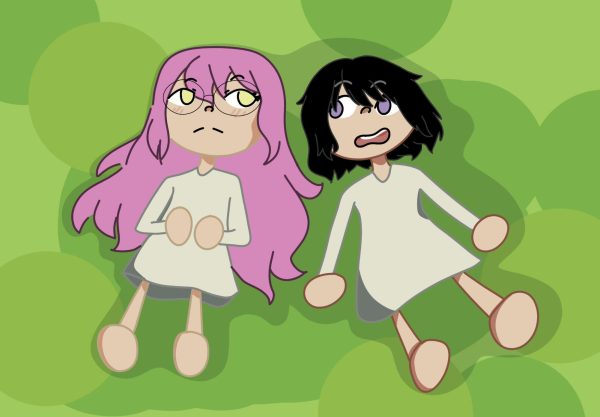Maskfishing: Harmless or Insecurity-Inducing?
With the rules of masking becoming more lenient, some students may be insecure of the features covered by their mask.
As new guidance has come out that will eliminate the mask mandate in California schools starting March 12, this change has certainly come with mixed feelings from students. Some students’ hesitancy stems from fear of getting sick or spreading the virus to at-risk family members. Other students are high-risk themselves, and don’t want to put their own health on the line.
But, to be honest, it seems as though many students’ worries center less around the increased chance of getting the disease itself and more around the changes that come with getting rid of a mask. For the past nearly 2 years, the most we have been able to see of each other’s faces is our eyes. All of the features below that point have been hidden, leaving those around us wondering what our actual face looks like when there isn’t a piece of cloth covering it.
For those who aren’t as confident with the features below their mask, face coverings have become a point of comfort. Being able to hide things about yourself that are insecurities of yours is without a doubt pretty appealing. Over the past few months, with mask restrictions have begun to loosen up, we more frequently see other people from the eyes down. This has introduced the concept of “maskfishing.”
A maskfisher is defined as someone who takes off their mask and appears less attractive than when they wore it.
Of course, there is nothing bad about being surprised by someone’s looks. After all, a human can’t create a completely accurate image of someone without fully seeing them. However, professionals agree that us as humans naturally create a more appealing, idealized version of someone when we don’t know what they look like. We subconsciously imagine someone having perfect proportions – a face that looks like it goes along perfectly with the parts that we can see. After creating this perfect image, it can be a shock to see that image fall apart. Again, this shocked reaction isn’t inherently bad. But, whether we realize it or not, constantly talking about the concept of maskfishing plays into a bigger issue of beauty standards.
Obviously, these standards existed way before the start of the pandemic in 2020. However, the introduction of masks, and maskfishing, has certainly heightened these ideals. We have definitely found ourselves analyzing our own features much more than we ever have before out of fear that they don’t go along with the image others create of us with our masks.
Take, for example, noses. A common insecurity among people is the shape or size of their nose, and what their profile looks from the side. With the removal of masks comes the reveal of our side profiles. This, coupled with the worry of looking too different without a mask on, can cause a lot of anxiety for individuals and worsen insecurities that were already there.
Another example of this is acne. Many students struggle with acne, particularly on their chin, or cheeks, which happen to be the areas covered by a mask. So, for individuals who have continuously struggled with acne, the fear of being a maskfisher is very present, leaving them wondering if others had imagined them with a clearer complexion.
Overall, as the mask requirements are beginning to loosen up, it is important to remember that everybody has their own insecurities, and for many, the changes can come with a lot of anxiety. While it is okay to wonder about other people’s looks, or be a little surprised when they take off their masks, we should remain supportive and respectful of each other’s appearances as we begin to return to a mask-less school environment.
Your donation will support the student journalists of Campolindo High School's The Claw. Your contribution will allow us to produce more issues and cover our annual website hosting costs.

Freshman Ruthie Stoll is a dancer, tennis player, and foodie. She grew up in a small town in Pennsylvania, moved to the Bay when she was 4, and just graduated...

Freshman Mia Daly’s passion for freedom in prose drove her to join the writing staff for The Claw.
Daly has always loved writing and English classes....

Sophomore Grace Franklin has an interest in art and improving her digital art skills through The Claw Art Staff. Franklin has a deep interest in video...


